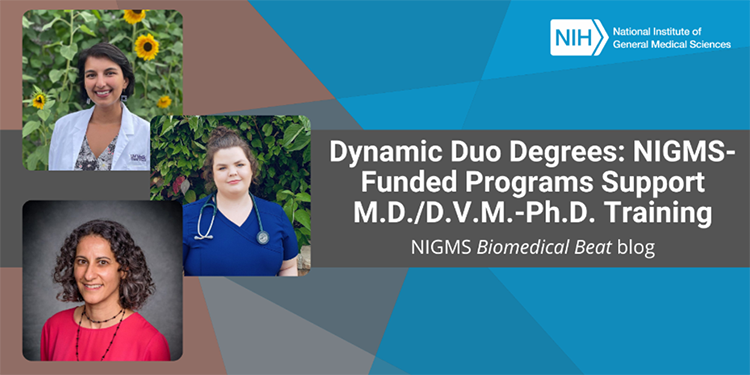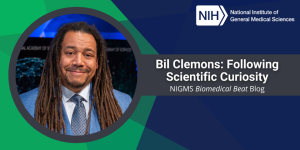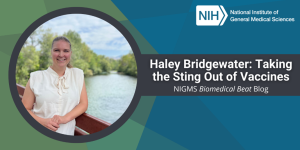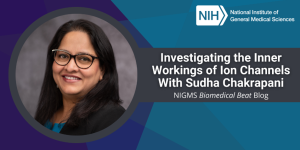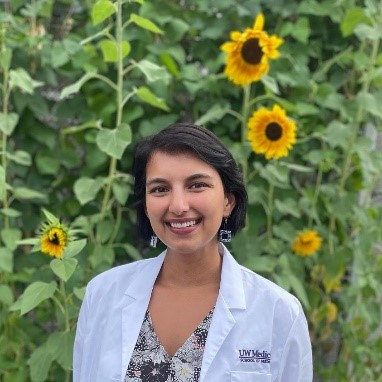
“Being able to ground your research in questions coming directly from your patients and their families is so meaningful and a huge part of why I’m interested in becoming a clinician-scientist,” says Amelia Wilhelm, an M.D.-Ph.D. student in the NIGMS-supported Medical Scientist Training Program (MSTP) at the University of Washington in Seattle. MSTPs prepare students to combine clinical practice and rigorous scientific research in their future careers.
Continuing the Family Tradition in Science
As a child of two scientists, Amelia was exposed to research and medical careers from an early age. She earned a bachelor’s degree in chemistry at Bates College in Lewiston, Maine, and then began working as a lab technician at the Children’s Hospital of Philadelphia in Pennsylvania. Watching the principal investigator of her lab, clinician-scientist Lindsey A. George, M.D., interact with patients inspired Amelia to pursue a similar career.
Amelia chose the MSTP at the University of Washington because of the wide variety of research opportunities and the connection she felt with the program directors and students. She began her second year of medical school in summer 2022. Next, Amelia will take 4 years to work on her Ph.D. before completing her final 2 years of medical school. She hopes to focus on immunology in her Ph.D. research, her clinical studies, and eventually in her practice as a clinician-scientist.
Amelia says that the MSTP directors were especially helpful with connecting her with mentors for her summer clinical rotations. They also provided professional development opportunities, such as visiting an MSTP alumnus who now works in industry to learn about that career path.
Although she’s still in the early phases of becoming a clinician-scientist, she’s already supporting younger students with similar interests. Amelia has collaborated with the career development center at her alma mater to offer webinars where she’s shared advice on preparing for a career in medicine. She’s also worked with other University of Washington graduate students to organize quarterly webinars about clinician-scientist careers for undergraduates at schools in Washington, Wyoming, Alaska, Montana, and Idaho that don’t have premed advising.
Helping Animals Through the Clinic and the Lab
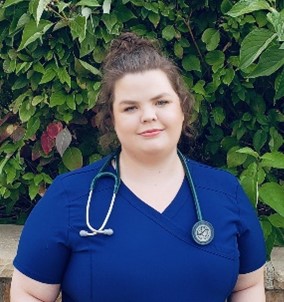
Carley Dearing decided she wanted to be a veterinarian when she was about 5 years old. That dream never faded, but she also fell in love with research while working in an infectious disease lab as an undergrad at the New Mexico Institute of Mining and Technology. Carley felt that the perfect way to combine her two passions was to become a veterinarian-scientist, so she joined the NIGMS-supported D.V.M.-Ph.D. MSTP at Colorado State University.
The 2022–2023 school year is Carley’s fifth in the program. She has completed 2 years of veterinary school and is nearing the end of her Ph.D. research, studying how chronic stress can contribute to the development of cardiovascular and metabolic diseases. After earning her Ph.D., she’ll complete her final 2 years of veterinary school. Carley hopes to become a professor at a veterinary school with a teaching hospital so that she can continue working with animal patients. “I love that a D.V.M.-Ph.D. enables you to have an immediate impact on people’s and animals’ lives through clinical work and also a long-term impact through research, changing how we think about and treat diseases,” she says.
Carley appreciates how the MSTP has supported her professional growth. She says the seminar course students take each fall where they present their research progress has helped her hone her science communication skills. In addition, the spring MSTP seminar course, which rotates topics, has given Carley insights on career opportunities for D.V.M.-Ph.D.s, guidance for writing grant applications and scientific manuscripts, and the importance of diversity, equity, and inclusion in STEM. She’s also attended conferences such as the National Veterinary Scholars Symposium through the program, which has provided professional development and networking opportunities.
What stands out to Carley most about the MSTP is the close-knit community of students and mentors. “I think the moments where we all come together to support each other are the most meaningful parts of this program, because those connections are really our lifelines to succeeding in the MSTP and beyond,” she says.
Passing On a Passion for Research and Medicine
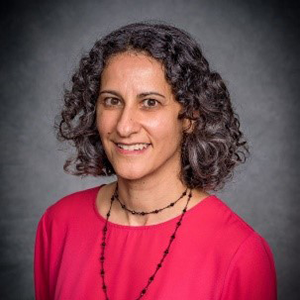
Talene Yacoubian, M.D., Ph.D., a professor of neurology and neurobiology at the University of Alabama at Birmingham (UAB), joined the school’s MSTP advisory committee in 2014, knowing the challenges of becoming a clinician-scientist and the importance of supporting students on that path. Dr. Yacoubian didn’t anticipate becoming the program’s co-director 4 years later and the sole director in 2021, but she’s thrilled to be in a position to help students grow into clinician-scientists. “It’s really been gratifying to work with students going through difficult times and see them thriving in the end,” she says.
The UAB Heersink School of Medicine MSTP provides a wide range of support to students. One example is the MSTP family program. At the beginning of their first year, each student is assigned to a “family” that includes one or two students from each MSTP cohort, enabling mentoring within and across the cohorts. Another example of support is MSTP-specific classes. These include a clinician-scientist seminar series where guest speakers share their career paths and research, a grant proposal writing course, and a clinical continuity course that helps students maintain their medical knowledge during their Ph.D. years.
In collaboration with the MSTPs at Emory University in Atlanta, Georgia, and Vanderbilt University in Nashville, Tennessee, the UAB program also runs the annual Southeastern Medical Scientist Symposium. MSTP students choose the theme and speakers for the event, which provides an opportunity to network with established clinician-scientists and other students.
“Our MSTP’s number one goal is for each student to learn how to become an outstanding clinician-scientist, one of those few people who can bridge clinical practice and biomedical research to make a difference,” Dr. Yacoubian says.
The University of Washington, Colorado State University, and UAB MSTPs are supported by NIGMS grants T32GM007266, T32GM136628, and T32GM008361, respectively. The Southeastern Medical Scientist Symposium is supported by NIGMS grant R13GM109532.
Other Posts You May Like
- Understanding Signaling Through Cell Membranes: Q&A With Chrystal Starbird
- Bil Clemons: Following Scientific Curiosity
- From Science Fair to Science Lab: Q&A With Chelsey Spriggs
- Haley Bridgewater: Taking the Sting Out of Vaccines
- Investigating the Inner Workings of Ion Channels With Sudha Chakrapani


